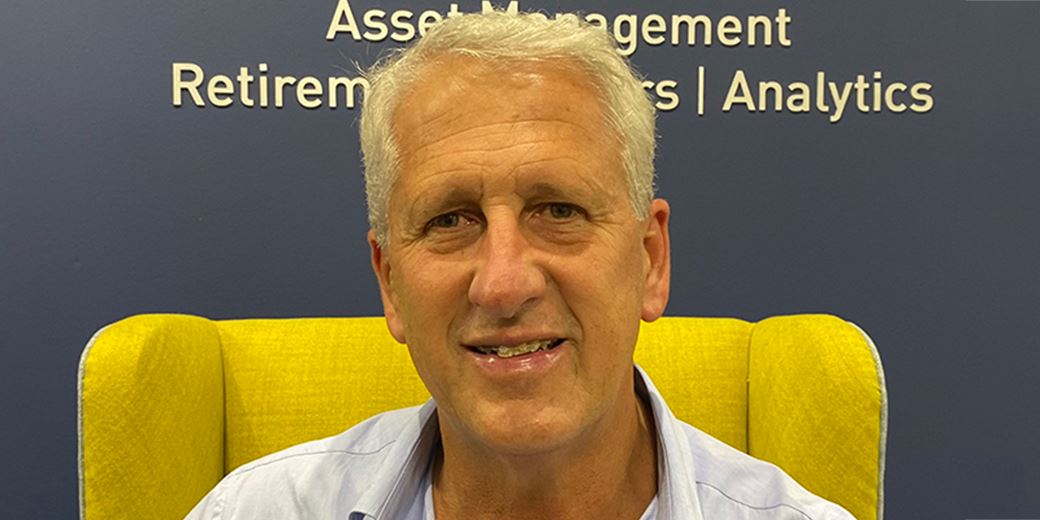Anton Turpin, managing director of MiPlan, emphasises the importance of creating a sustainable competitive advantage, and that requires differentiation.
 When Anton Turpin founded MiPlan in 2006 he had a clear objective in mind.
When Anton Turpin founded MiPlan in 2006 he had a clear objective in mind.
‘The core tenet was to create a sustainable competitive advantage,’ he told Citywire South Africa. ‘I very much had the idea of an independent, boutique asset management company that did a lot more than just asset management.’
Specifically, he saw that to really meet investors’ needs, there had to be integration between asset management and financial planning.
‘You have to do more,’ Turpin (pictured) said. ‘You can’t just offer a product to the market and say it is the best. You have to start solving some of the needs of financial advisers, which are, in turn, the needs of their clients.’
He started MiPlan as a ‘best in class’ asset manager, giving specific fund mandates to managers he identified as being the best at executing specific strategies – for example, Rowan Williams-Short in fixed income and Tony Bell in the target return and global flexible space. This business now has assets under management in excess of R12bn.
‘I always look to the manager and not the company,’ Turpin said. ‘I really do believe that it’s about the skill of the manager as opposed to the brand.’
In time, there was a natural progression for MiPlan to also offer a discretionary fund management (DFM) service. Turpin’s goal was always to bring financial planning and asset management closer together.
‘Very bespoke’
His approach with advisers was to follow the same core strategy he had for MiPlan.
‘The experience that I’ve gained as an independent boutique is exactly what I want to try to impart to financial advisers through the DFM, but with a couple of big differences,’ Turpin said.
‘The first is that I am trying to empower the adviser to create their own sustainable competitive advantage. The nuance there is that in order to do that, one has to be very bespoke.’
The second is to help adviser clients run leading-edge businesses.
‘That’s where technology comes in. It allows for seamless integration between financial planning and asset management.
‘When South Africa was dominated by defined benefit funds, you had an actuary looking at the liability profile of members and creating an investment policy. In a defined contribution world, there is a gap because you can’t appoint an actuary for every individual client. That responsibility has been passed to the financial adviser.’
MiPlan’s liability planning software aims to help advisers to do this work effectively and efficiently.
‘What you have now are advisers that create a financial plan, and a DFM who creates the solution. But if the information that is put together by the adviser is not effectively incorporated into the eventual asset allocation, there is a mismatch. That’s what we have tried to solve.’
The outcome is individualised solutions – both for advisers and their clients.
Differentiation
MiPlan has grown its DFM service to R3.5bn in assets under advice, at a compound annual growth rate of 30% per year since late 2015.
‘I really believe that to facilitate a sustainable competitive advantage, we need to understand the adviser, the adviser base, and create something for that adviser that is differentiated,’ Turpin said.
‘If you understand their base, where they are at, what their needs are, you can also understand how to create something that is different from the adviser next door.’
However, this does raise questions about how multiple solutions for multiple advisers can all be ‘optimal’. However, Turpin views this question philosophically.
‘There is no such thing as one optimal portfolio. If you can guarantee where alpha is coming from, you can create an optimal solution. But investing is not binary.
‘What is the best equity fund? Is active better than passive? Would you invest in a fund with performance fees? Are there ESG considerations to consider? There is no one answer. It’s always a combination, and we want to blend managers together to deliver consistency of returns. But you need to know the adviser and the client.
‘What I’ve learned over the years is that we can have our own feelings about what is best, but we can only ever facilitate, we can’t dictate. At the end of the day, even the client dictates to the adviser to some extent. If you have a client that wants to index, or wants a specific fund, or wants to use a specific platform, you have to create a solution around that need.’
The DFM’s role, in his view, is to always manage risk.
‘We are trying to ensure we have that covered, as much as we humanly can, and that we won’t have something coming at us that we weren’t expecting. That comes down to combining different asset managers, and combining them in a way that we don’t end up being exposed to inadvertent risks that we haven’t understood.’
Original article can be found here: DFM head: ‘There’s no such thing as one optimal portfolio’ – Citywire





